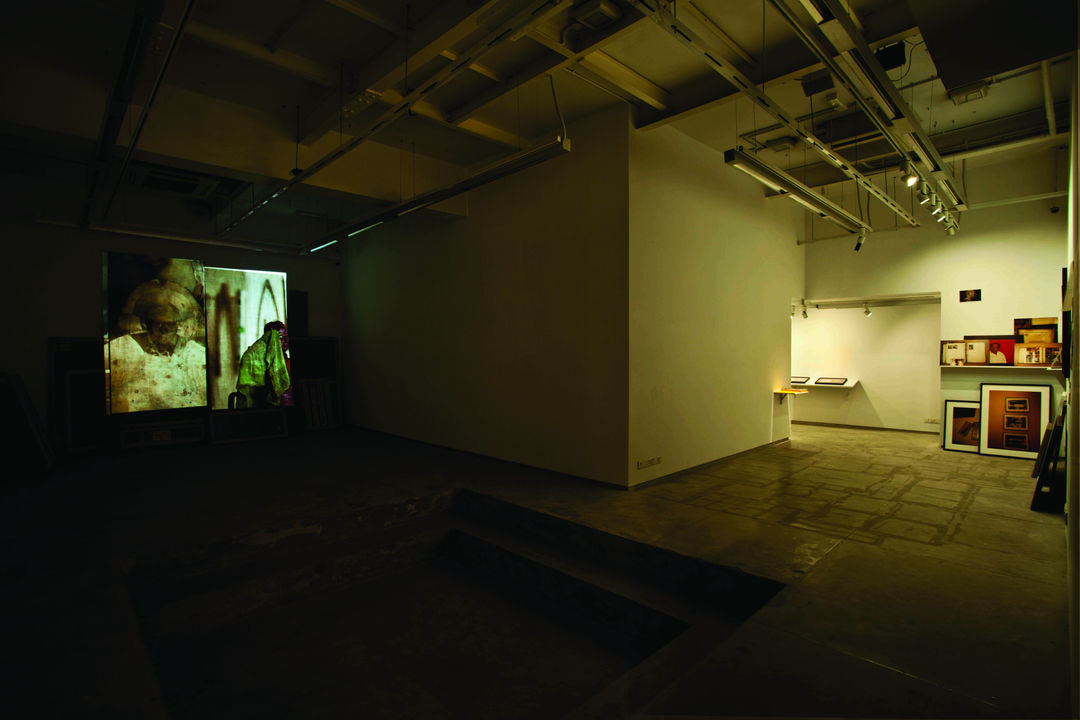The self-delusional aspirations of a small time Indian politician who wants to attain immortality by commissioning a statue of himself, the memoirs of an octogenarian sculptor who contemplates the changing ideologies behind political statuary in India, the dioramas scattered around the home of a military model hobbyist who subverts popular historical narratives in his eccentric creations – Abidi’s recent video and photographic installations reflect on the politics of commemoration through a sense of amused detachment. From the monumental to the miniature, she looks at the relationships her characters form with these sculptures that seek to impress upon public memory and individual fantasies.
Power, which manifests itself at all levels of human society, is mostly insidious, frequently ridiculous, sometimes overt, largely pompous and rarely, intelligent. Bani Abidi’s work in the past few years has been inspired by the conceptual and visual vocabulary of authority and power. Having lived in a country where the forces of class, caste and feudalism define most social relations, Abidi’s works reflect these complexities through a sense of poignant satire. The rise of small time politicians into big ones, the changing postures of petty managers as they rise up the institutional ladder, clusters of sychophants who busy themselves around their bosses, expressions of traffic officers as they extract bribes from unsuspecting motorcyclists and most importantly, the chains of influence that keep these systems intact, Abidi has a keen eye for the ‘everyday’ in her construction of humorous, socio-political narratives. She attempts to arrive at ideas and formal solutions that age well beyond the limitations of what we all know today and may forget tomorrow.
Shot in a city on the outskirts of New Delhi, Death at a 30 Degree Angle (2012), is a fiction cast in the atelier of Ram Sutar, an octogenarian sculptor who is renowned in India for large statues of politicians and national heroes. It is a reflection on self-portraiture, megalomania and monumentality. Today, statues of erstwhile leaders, rulers and heroes lie scattered in graveyards and public squares all over the world as mere proxies, subjected to torture, ridicule and public vengeance. These are the very figures that inspired awe and fear in the lives of millions of people.
Proposal For A Man In The Sea (2012), a photographic installation around the life of sculptor Ram Sutar, was realized while scouting for locations for Death At A 30 Degree Angle in the summer of 2010, and was created inside the same studio. In this work Abidi looks at the brand of nationalism and utopian imagination experienced by a certain generation of people. These men and women, who have witnessed the independence of the Sub-Continent and the birth of their nations, see themselves as primary actors in the project of nation building. In her conversations with the sculptor, the artist recognized a familiar allegiance to such early nationalist ideals and a struggle to keep those alive.
In her third body of work at the exhibition, in continuation of ideas explored in her earlier work The Speech Writer (2011), she looks at make-believe worlds and human eccentricities that often serve as psychological safeguards against life and memory. In his 1913 book Little Wars, H.G. Wells spelt out a set of rules for war games to be played by boys and men of all ages. Being a pacifist, he wrote: ‘If Great War is to be played at all, the better it is played the more humanely it will be done.’ In this pre-war period, he imagined that games played on parlor floors and tabletops with toy soldiers and wooden guns could be a possible deterrent to the real thing. But what was meant to be therapy for war mongering became a proxy for the glorification of violence. Through the 20th century and into current times, miniature scale models of soldiers and armament have been collected by military hobbyists and war veterans to commemorate North American and European military histories. Not surprisingly, these "historical" narratives are mimetic of a triumphant political memory, reflective of political positions that are characteristic of these very spaces. The imaginary character in Abidi’s A Table Wide Country is also a collector of war models, but his is an attempt to overcome. He reacts to the history of a particular conflict with his own narratives that are uneasy, provocative, but also perhaps therapeutic.
Then It Was Moulded Anew, brings together significant bodies of work that have all premiered in international venues through 2012 and are showing for the first time in the country. Poised at a crucial moment in her career, the exhibition provides a window into Abidi’s acutely sensitive practice over the last few years.

